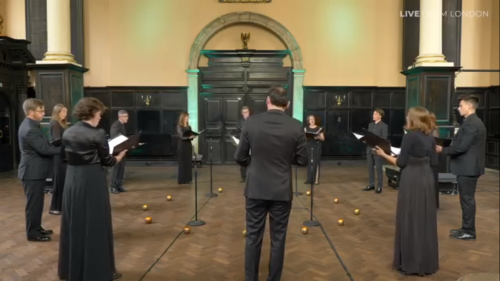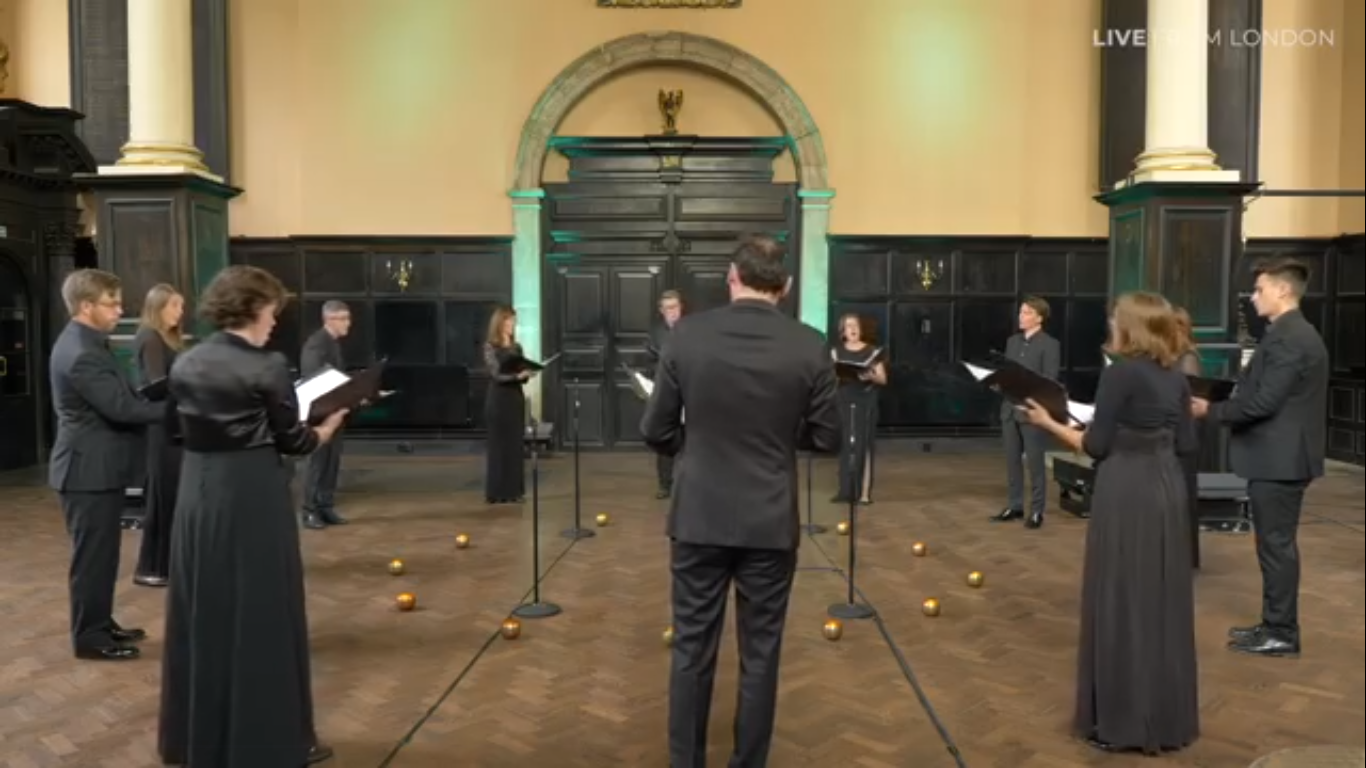
 United Kingdom LIVE from London SPRING – Miserere: Renaissance Lamentations: Stile Antico. Streamed from the VOCES8 Centre, London, 21.2.2021. (CC)
United Kingdom LIVE from London SPRING – Miserere: Renaissance Lamentations: Stile Antico. Streamed from the VOCES8 Centre, London, 21.2.2021. (CC)

Byrd – Cantiones sacrae: Miserere mei
Plainchant – Ad te Rex summe
Tallis – Purge me O Lord
de Monte – Super Flumina Babylonis
Plainchant – Rogamus Deus
Allegri – Miserere
Plainchant – Tibi fatemur
Sheppard – I give you a new commandment
Lassus – In monte oliveti
Plainchant – Innocens captus
Victoria – Tenebrae Responosires: O vos omnes. Tenebrae factae sunt
White – Lamentations a 5
A programme of Stile Antico’s favourite Lent works was the focus here, interspersed with Lenten plainsong. As their own programme notes say of Lent, ‘… all that miserable soul searching has inspired some wonderfully intense and heartfelt music’. This overview of Lenten music includes the most famous piece of all that fits into that category of all, Allegri’s Miserere; but also some music by the lesser-known Phillippe de Monte (1521-1603), whose quincentenary (of his birth) we celebrate this year.
Stile Antico is in its twentieth year: its Treasures of the English Renaissance concert in September last year was one of the highlights of the Live from London series; their new disc of Josquin (read my reactions to it here).
With the choir spread out in their trademark circular formation, Byrd’s Miserere mei (Psalm 51) flowed gently and magically; mystically, even. The male voices’ plainchant offered superb contrast to the Tallis Purge me, O Lord from all my sin.
The eight-part setting by the Flemish composer de Monte, Super Flumina Babylonis (By the streams of Babylon), is scored for two choirs; the interlacing of lines superbly effected by Stile Antico via pinpoint tuning and matching of tone, particularly in the soprano lines.
Hearing the Allegri Miserere (written for Ash Wednesday) after the chant Rogamus Deus only emphasises the potency of its soul-tearing simplicity, the high C’s positively cherubic. Frankly, I don’t remember being so affected by them since my first exposure to the piece, the famous Tallis Scholars Classics for Pleasure LP (back in the early 1980s).
John Sheppard is one of those composers that once one has heard his music, it is difficult to forget. I give you a new commandment commemorates the Last Supper at which the titular new instruction was delivered (‘that ye love one another e’en as I have loved you’). The scoring for low voices imparts a very specific dark sonority, and the text is sung in the vernacular, English. In comparison, the Lassus motet In monte Oliveti (On the Mount of Olives) is typically emotive. It seems to want to go on forever in its resonant richness.
It seems a logical step to the glowing interior world of Victoria’s O vos omnes (O, all of you that pass by the way), a piece that occasionally seems as if it will break out into the high registers of the Allegri; Stile Antico’s approaches to cadences, too, seemed magical in their own right, possessed of a sacred inevitability. Of Tenebrae factae sunt, it was perhaps the sheer emotive impact of the repeated line ‘Et inclinato capite, emisit spiritum’ (‘And, bowing his head, he gave up the ghost’) that was the most impressive.
John White (c.1538-1574) was Master of Choristers at Ely Cathedral (taking over from Christopher Tye, whose daughter he married), and moved on to Westminster Abbey. Sadly, he died in his early thirties because of the plague. White sets six verses from Lamentations Chapter One and also sets the Hebrew letters that form the structure of the Biblical Lamentations. For example, it is fascinating to hear the florid setting of the letter ‘Heth’ prior to the Latin ‘Peccaum peccavit Jerusalem’ (‘Jerusalem has committed a great sin’); even more marked is the setting of ‘Teth’ next to the sheer heaviness of ‘Sordus eius in pedibus eius’ (‘Her own filth is upon her feet’). As the White slowly unfurls, its greatness gently insinuates itself into an all-enveloping experience.
A concert, then, that confirms the stature of Stile Antico beyond any doubt. And while some might have tuned in for the Allegri Miserere, it is perhaps the White that will linger longest in the memory.
The next concert in the series (click here) is given not by a choir but by a string quartet – The Carducci Quartet – on February 28, augmented by a performance of Barber’s Dover Beach (with bass-baritone Frederick Long) and VOCES8’s performance of Ola Gjeilo’s Sacred Heart.
Colin Clarke
